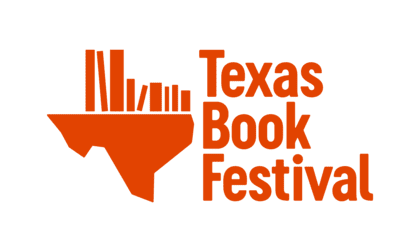
Today, we’re happy to share this thoughtful Q&A with lovely Houston YA writer (and 2017 Texas Book Festival author) Liara Tamani! Tamani, “a strong believer in following your heart, even when you don’t know exactly where it’s taking you,” holds a BA from Duke University and an MFA in Writing from Vermont College and has had a rather exciting and varied career path on her way to becoming a writer: she’s been “a marketing coordinator for the Houston Rockets & Comets, a production assistant for Girlfriends (TV show), a home accessories designer, a floral designer, and yoga and dance teacher.” She was raised in Houston, and lives there now with her daughter and her succulent collection.
Texas Book Festival: What made you want to write for teens?
Liara Tamani: I can’t say that I set out with the intention to write for teens, but I can say that I feel honored to be writing for them now. When I wrote Calling My Name, I wasn’t thinking about where it would be placed on the shelf. I was blissfully living in the land of Let Me Write the Best Book I Possibly Can and was completely naïve about the business side of publishing.
After I finished the book and started sending it out to agents, I learned the voice was best suited for the YA market, which didn’t surprise me. I’d written the book for my teenage self.

It fills me up when I think about teens reading my words and possibly taking away these lessons. Teens have so much power. But when they are mentally trapped inside the expectations and opinions and beliefs of other people, it’s hard to realize that power.
To be able to write for young people, to be able to help them connect to all of the beauty and power and light and intelligence that resides within them, is a huge honor. And I’m grateful for it. Teens will change the world.
TBF: You have quite the prestigious CV (undergrad at Duke, law school at Harvard, design school at Otis, earning an MFA at Vermont College of Fine Arts). What lead you to writing? Was it a life-long dream or a sudden inspiration?
LT: I’ve always been a writer. I just didn’t know it. Trying to live up to the expectations of my dad, who wanted me to become lawyer, disconnected me from my own dreams.

In college, I majored in Political Science (because that was the major I thought would best prepare me for law school), but I squeezed in literature whenever I could. For a history term paper, I wrote about Phyllis Wheatley, the first published African American female poet. For a political science term paper, I wrote in depth about W.E.B. Dubois’ The Souls of Black Folk. My professors always accused my writing of being too literary. They wanted me to write more straight forward, to take out all of my “flowery” language. But I still didn’t know I was a writer.
In order to connect to the dormant dream living inside of me, I had to shed other people’s expectations and opinions of me. I had to trust myself. And I eventually did, mostly because I couldn’t face the sadness of living a life without passion. The first step I took was dropping out of Harvard Law, despite what everybody thought about it (and believe me, people had their thoughts).

TBF: Calling My Name is set in Houston, where you grew up. What do you love most in writing about Houston? What are the pros and cons about writing a book set in your home city?
LT: I love representing Houston! When people from other parts of the country and world think of Texas, they often still picture cows and horses and fields. Texas has a lot of that, sure, but it’s so much more than that. Houston is the fourth largest city in the county. And it’s the most racially and ethnically diverse city in the country, but we don’t see that in its representation. I love that Calling My Name allows people to see Houston through the eyes of a young, black girl living in the suburbs. A very common experience in Houston (and in the south in general), but not one that’s well represented.
And teenagers of color know this. On my high school visits in Houston this year, the students were geeked about the book taking place in Houston and about me being from Houston. I loved witnessing their pride. Everybody wants and deserves to see themselves in books and TV and film. Everybody wants and deserves to be represented.
I also loved learning more about my hometown while researching the setting. I was on Google Maps travelling down streets I’ve never been down before. It was cool exploring Houston.
In summary, I loved everything about writing a book set in Houston. :) No cons.
TBF: What are you working on now?
LT: Book two! I’m soooo excited about my second novel. It’s very different from my first, but I absolutely love it. It’s written in alternating first person perspectives (girl-boy), and the whole book takes place over the span of two months. By comparison, Calling My Name takes place over five years. I don’t want to give away too many details about the new book because I’m not finished with it yet. But it’s coming! And I can’t wait for everyone to read it! And it’s also set in Houston—this time, present-day Houston.
I also just finished a short story that will appear in a YA anthology edited by Ibi Zoboi entitled Black Enough: Stories of Being Young & Black in America. In it, my words will be alongside the words of some of my favorite writers, including Renée Waston, Rita Williams-Garcia, and Jason Reynolds. I’m so thrilled. Look out for it next year!

